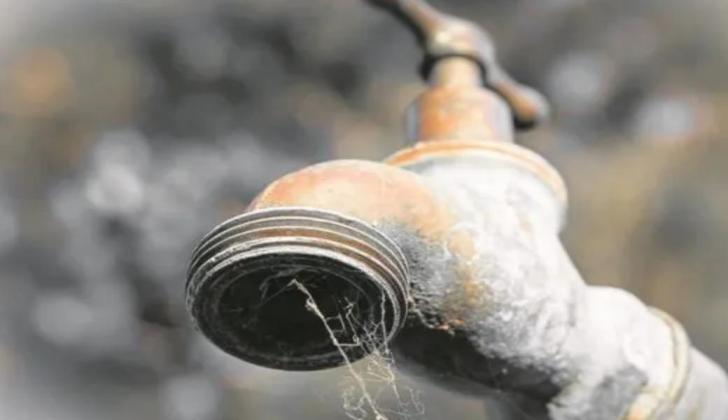News / National
Bulawayo water passes quality test
4 hrs ago | Views

About 95% of water samples collected from various points across Bulawayo have tested negative for faecal coliforms, while 78% met all safety standards for key parameters, including high coliform count, non-faecal coliform, and faecal coliform presence, according to the latest water quality monitoring report by the Bulawayo City Council (BCC).
The report, presented by BCC Director of Health Services Edwin Mzingwane Sibanda, reflects a significant improvement in the city's water safety levels amid ongoing concerns over waterborne diseases and a deteriorating sewer system.
According to Sibanda, a total of 19 routine bacteriological samples were collected and tested by Criterion Laboratory. Of these, 18 were negative for faecal coliforms (95%), and 16 tested negative for non-faecal coliforms (84%). Only one sample recorded a high coliform count. Overall, 78% of the samples passed all safety tests across the three major contamination indicators.
In addition to lab analysis, on-site field tests were conducted at 18 water points to assess pH, turbidity, and residual chlorine levels, with all samples meeting the required safety standards.
The council also inspected 48 alternative water sources—including boreholes and water kiosks—with 40 found to be satisfactory. Water from all these alternative sources tested safe for pH and turbidity, the report said.
"Health education was conducted targeting communities using the alternative water sources inspected," the report added. These campaigns focused on promoting safe storage, proper water handling, and domestic treatment methods like boiling.
Nine schools across the city, including Emakhandeni High, Pumula High, and Imbizo Primary, were also assessed. However, only seven were found with functioning health clubs. Emakhandeni High School faced acute water supply problems due to low municipal water pressure and a non-functional borehole—conditions which the council warned could negatively impact hygiene and increase vulnerability to waterborne diseases.
Despite the improvements in water quality, city officials and health experts remain concerned about the underlying infrastructure. Bulawayo has repeatedly been flagged as a diarrhoea hotspot due to collapsing sewer systems, irregular municipal water supply, and reliance on untreated borehole water.
In 2020, the city was rocked by a deadly diarrhoea outbreak that killed 13 residents in Luveve and infected over 2,000 others. Recurring outbreaks have plagued the city ever since.
The council continues to urge residents to boil borehole water before drinking or cooking, especially in light of persistent complaints about discoloured municipal tap water.
With the ongoing water crisis far from over, BCC says it will maintain active monitoring, expand public health education, and work toward sustainable improvements in water and sanitation infrastructure.
The report, presented by BCC Director of Health Services Edwin Mzingwane Sibanda, reflects a significant improvement in the city's water safety levels amid ongoing concerns over waterborne diseases and a deteriorating sewer system.
According to Sibanda, a total of 19 routine bacteriological samples were collected and tested by Criterion Laboratory. Of these, 18 were negative for faecal coliforms (95%), and 16 tested negative for non-faecal coliforms (84%). Only one sample recorded a high coliform count. Overall, 78% of the samples passed all safety tests across the three major contamination indicators.
In addition to lab analysis, on-site field tests were conducted at 18 water points to assess pH, turbidity, and residual chlorine levels, with all samples meeting the required safety standards.
The council also inspected 48 alternative water sources—including boreholes and water kiosks—with 40 found to be satisfactory. Water from all these alternative sources tested safe for pH and turbidity, the report said.
"Health education was conducted targeting communities using the alternative water sources inspected," the report added. These campaigns focused on promoting safe storage, proper water handling, and domestic treatment methods like boiling.
Nine schools across the city, including Emakhandeni High, Pumula High, and Imbizo Primary, were also assessed. However, only seven were found with functioning health clubs. Emakhandeni High School faced acute water supply problems due to low municipal water pressure and a non-functional borehole—conditions which the council warned could negatively impact hygiene and increase vulnerability to waterborne diseases.
Despite the improvements in water quality, city officials and health experts remain concerned about the underlying infrastructure. Bulawayo has repeatedly been flagged as a diarrhoea hotspot due to collapsing sewer systems, irregular municipal water supply, and reliance on untreated borehole water.
In 2020, the city was rocked by a deadly diarrhoea outbreak that killed 13 residents in Luveve and infected over 2,000 others. Recurring outbreaks have plagued the city ever since.
The council continues to urge residents to boil borehole water before drinking or cooking, especially in light of persistent complaints about discoloured municipal tap water.
With the ongoing water crisis far from over, BCC says it will maintain active monitoring, expand public health education, and work toward sustainable improvements in water and sanitation infrastructure.
Source - Southern Eye









































